From the emotional climax of Charlotte Wells’ Aftersun, to the infamous sausage fingers in Everything Everywhere All at Once – Alex Denney lists the most memorable cinematic moments of the past year
A great scene lingers long in the mind after the finer points of a film’s plot have faded from memory. Nail just a few, and your audience is far more likely to forgive what happens in between. Get it wrong, and you can find yourself lapsing into self-conscious bravado (Triangle of Sadness’s hotly debated dinner-party scene) or arty obfuscation (Alex Garland’s Men). Looking back at some of the year’s most memorable moments on screen, we tried taking stock of all the things that make a scene tick, like the music, the imagery, the director’s handling of mood or the joy of a great idea well executed.
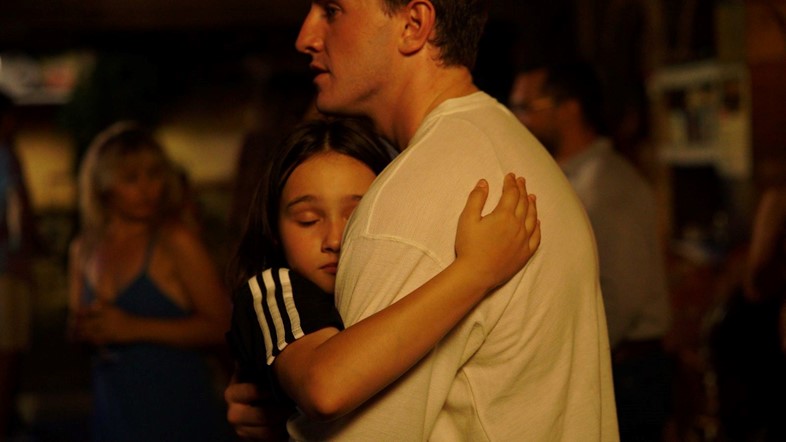
Aftersun
A scene that swept through me like a hurricane the first time I saw it, Paul Mescal’s parting dance with screen newcomer Frankie Corio, hauntingly soundtracked by Queen and David Bowie’s Under Pressure, provided director Charlotte Wells with the gut-punch emotional climax for her first feature, Aftersun. It’s a moment of sheer intuitive genius that leads to another, when Mescal’s troubled dad walks through a pair of airport doors into a strobe-lit room right at the end.
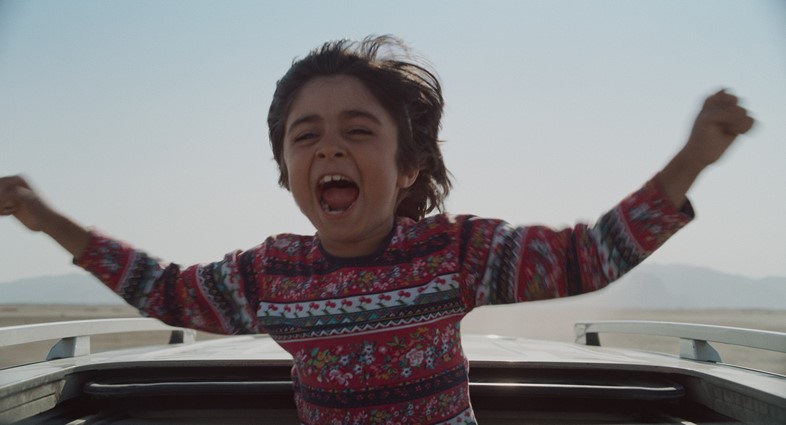
Hit the Road
Songs are an integral part of Panah Panahi’s feature debut Hit the Road, nowhere more so than in the beautiful final sequence. The film follows an Iranian family’s attempts to smuggle their son out of the country via the Turkish border, singing old pop songs along the way to stave off their sadness. At the end, having sold their home to aid their son’s escape, they stop in the desert to bury their dog. Suddenly, their youngest child starts lip-syncing the words to Shabzadeh, a song about loss and exile by Iranian pop crooner Ebi – a moment of magic in a world where hope is in short supply.
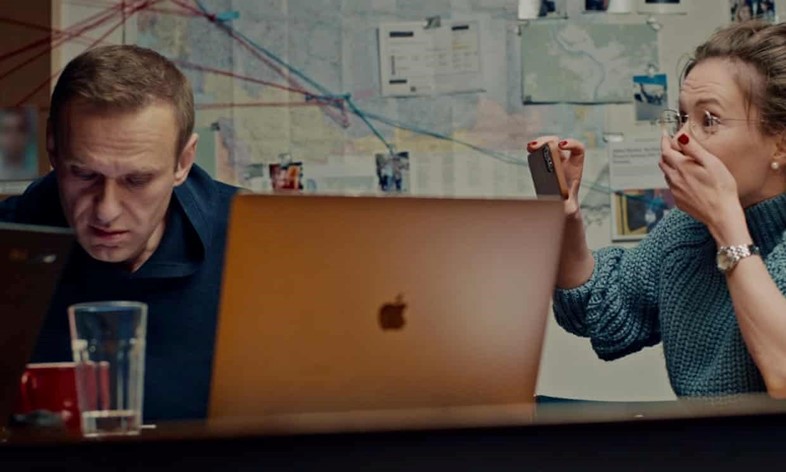
Navalny
The moment politician Alexei Navalny calls up his would-be killers has been described as “the year’s scariest scene”, and of course, the reason it’s so scary is because it’s all true. Navalny has been one of Vladimir Putin’s staunchest critics and is now serving nine years in jail on trumped-up charges of embezzlement. In 2020, he was poisoned with novichok by Kremlin agents but lived to tell the tale to Canadian filmmaker Daniel Roher, who gets this extraordinary scene in which one of Navalny’s would-be assassins accidentally fesses up to his crime. That guy’s current whereabouts? Unknown.
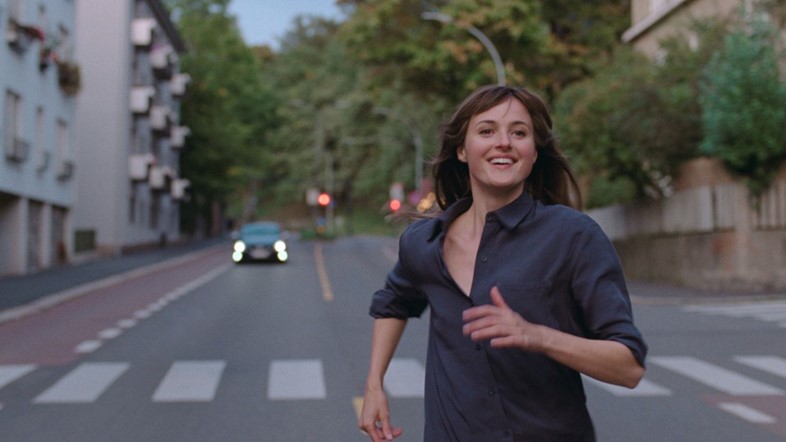
The Worst Person in the World
Are horny people better at running? I only ask because it seems like people in rom-coms have been running around on screen since the dawn of time. In The Worst Person in the World, Julie (Renate Reinsve) pauses time before racing across town to the cafe where the guy she fancies is working. They take off for a walk in the park, everyone else stood statue-still, in a romantic scene that beautifully illustrates how, in such moments, the world can seem like a set built for your own personal enjoyment. It was enough to make you want to get on Skyscanner and book the next flight to Oslo.
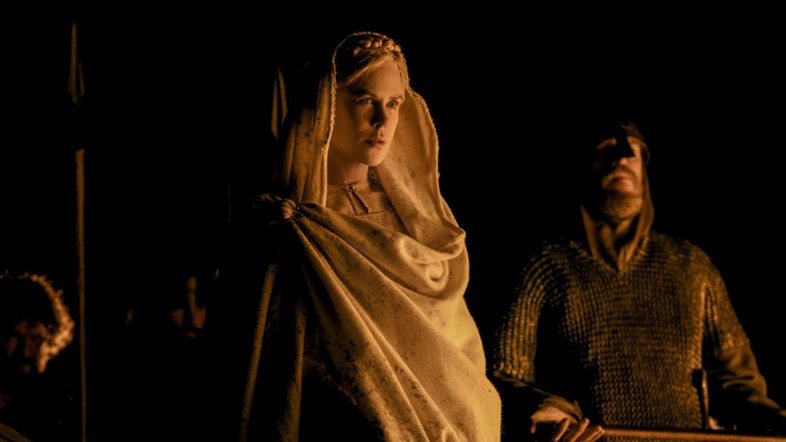
The Northman
I spent a long time wondering what on earth Nicole Kidman was doing as Queen Gudrún in The Northman, carted off as a trophy by her brother-in-law after he thoughtlessly murders her husband. The answer lies in this great scene – perhaps the only one to land with real emotional force in Eggers’ beautifully wrought but dramatically undercooked epic – where Prince Amleth’s quest for revenge is revealed as a lie. Kidman gets some great, Shakesperean lines to chew on (“How easily we become princesses when the beasts make us their wives!”), making a mockery of her son’s would-be heroism before making a seductive play that backfires spectacularly.
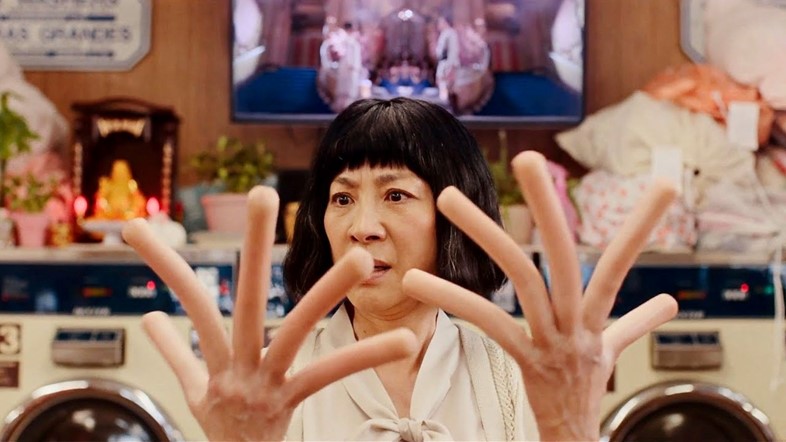
Everything Everywhere All at Once
Daniels’ absurdist comic vision finds its purest expression in this great scene fom Everything Everywhere All at Once, where Evelyn (Michelle Yeoh) has her first encounter with Jobu Tupaki (Stephanie Hsu) – a psychotic, universe-hopping incarnation of her daughter. Jobu’s entrance is something to behold, an unholy cross between Agent Smith from The Matrix and Lady Gaga on a Vegas residency, and the directors marshal the ensuing violence with a wit and panache that borders on genius. The pair save their galaxy-brain twist till last, however, when Evelyn attempts to ‘download’ fighting skills from another dimension, Neo-style, but instead ends up in a parallel universe where everyone has hot dogs for fingers.
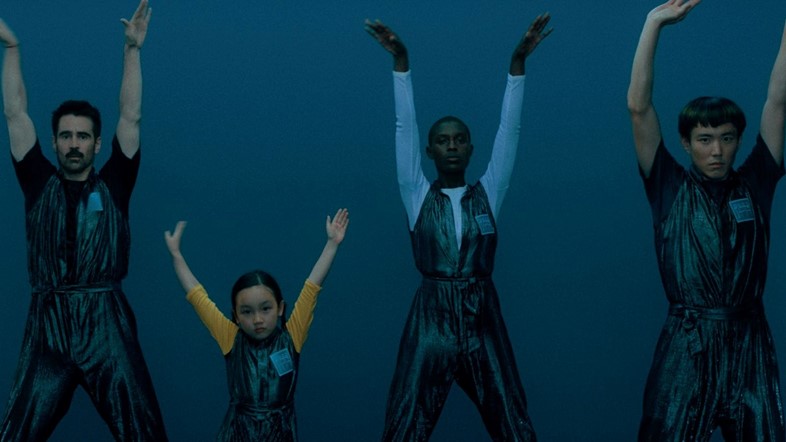
After Yang
In the dazzling opening credits for Kogonada’s sci-fi drama After Yang, Colin Farrell makes like H from Steps and performs a choreographed dance routine with his co-stars. It’s a sweetly funny scene that does a surprisingly good job of hinting at what’s to come, establishing the family dynamic as Farrell and co compete in an online dance-off, crashing out when their AI, Yang, ‘dies’ in the middle of the performance. Cue a poignant sci-fi meditation on memory and loss, which also has perceptive things to say on loneliness in a hyper-connected world, and the impact of 24/7 work culture on family life. The modern dance, if you like.
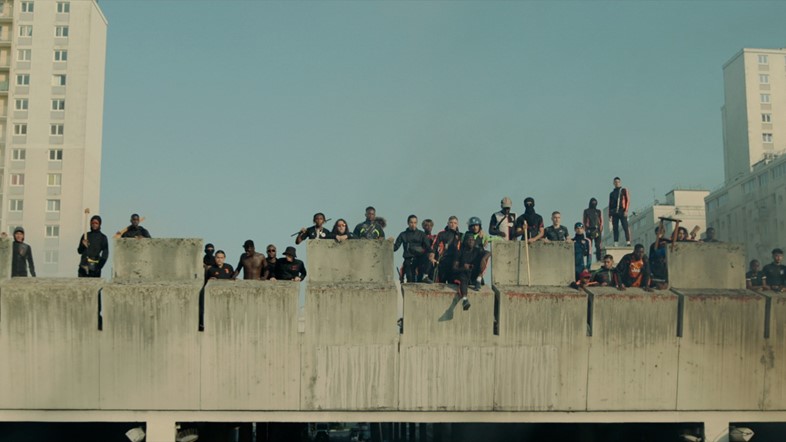
Athena
It might have been set in the banlieues rather than the beaches of Dunkirk, but the breathtaking scene in Athena plunging us into the heart of a pitched battle between residents of an urban Parisian estate and police had something of the epic quality of Saving Private Ryan. Director Romain Gavras’ touch was less assured on the smaller-scale human drama, but his opening salvo was still a tour de force of immersive action cinema worth price of admission on its own.
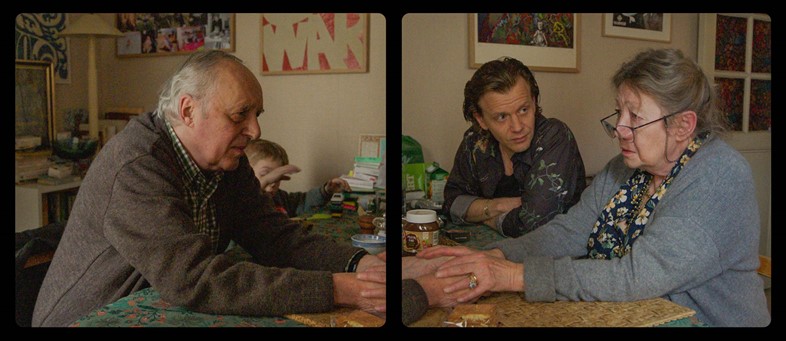
Vortex
The most heart-rending scene in Vortex, Gaspar Noë’s traumatic account of a couple living in the shadow of dementia, was also one of its quietest. Françoise Lebrun’s character sits at the table with her husband, played by Dario Argento, her son and her grandson, who is playing noisily with his toy. Lebrun’s character becomes agitated, and tries to articulate the sorrow she feels at being a burden to her family. When the words won’t come, she starts to cry – an unscripted moment that apparently moved the director to tears and prompted Argento to reach a consoling hand across the table, his arm unnaturally extended by Noe’s use of split-screen cameras. It’s a blink-and-you’ll-miss-it moment, beautifully acted, that unintendedly sums up the theme of severed connections running through the film.
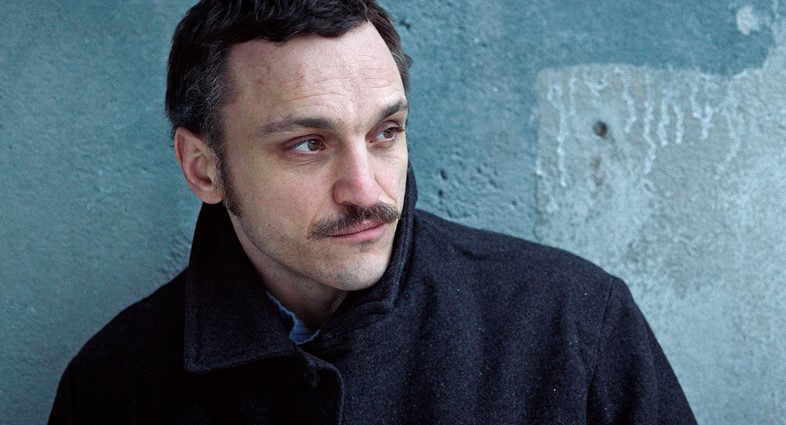
Great Freedom
We could pick almost any scene from Great Freedom, Sebstian Meise’s moving, queer-history drama set in 1950s Germany, such is the hold Franz Rogowski exerts over the screen. Already something of a star in his native Germany – he’s appeared in films by Michel Haneke and Christian Petzold – he excels here as a man who refuses to be broken, sent straight from the Nazi prison camps to jail for his homosexuality at the end of the war. In this scene, he smoulders like a younger, leaner Joaquin Phoenix as he pursues an ex-lover in the prison yard, as his aggressively straight roomie Viktor watches his DGAF attitude with quiet amazement.
